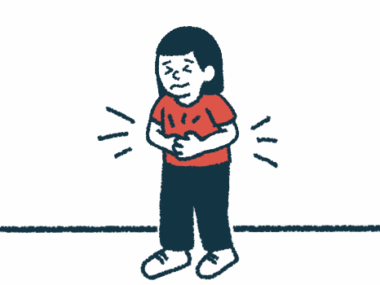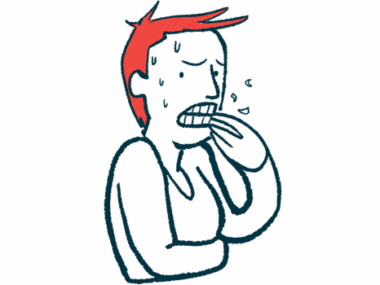Bonding helps ease family stress faced by PWS patients’ relatives
PTSD, anxiety, depression among the mental health challenges cited in study
Written by |

Parents and siblings of people with Prader-Willi syndrome (PWS) commonly experience stress and other mental health challenges, but greater family cohesion, or bonding, helped buffer against these adverse outcomes, according to a study that surveyed people from around the world.
In questionnaires completed by parents, parental depression, anxiety, and stress were common, while symptoms of post-traumatic stress disorder (PTSD) were prevalent in siblings. These mental health symptoms were less common when parents reported greater family cohesion.
The study, “Anxiety, Depression and Stress in Parents and Siblings of People Who Have Prader-Willi Syndrome: Morbidity Prevalence and Mitigating Factors,” was published in the Journal of Intellectual Disability Research.
“The present findings provide important insights into the lives of families living with PWS,” the researchers wrote. “Strategies to enhance family cohesion should be employed to help diminish adverse outcomes among PWS families.”
More than half of parents in study showed anxiety, depression
PWS is a complex neurodevelopmental disease characterized by a wide range of symptoms, including excessive hunger and food-seeking behaviors, intellectual disabilities, temper outbursts, and other behavioral issues.
Patients typically require lifelong care and supervision, and commonly live with their families into adulthood. This can place a significant burden on family members — including parents and siblings — leading to stress and mental health challenges that impair their own quality of life, the researchers wrote.
In the recent study, a duo of scientists in Ireland aimed to further examine mental health outcomes in parents and siblings of people with PWS and the factors that could help mitigate stress in this population.
A total of 135 adult parents of people with PWS, representing 31 countries across the globe, filled out a questionnaire about their experiences, including standard measures of depression and anxiety, stress, and family cohesion, as well as perceptions of social support.
Overall, PWS patients in these parents’ care ranged in age from younger than a year old to 47. The majority of patients, 105 of 135, were living full time in the family home.
More than half of parents were found to have borderline or abnormal levels of anxiety and depression. Specifically, 67% of parents had abnormal anxiety levels and 16% had borderline abnormal levels. For depression, 34% were considered to have abnormal levels and 22% to have borderline levels.
Greater parental anxiety and depression were each significantly associated with more severe food-related problems of their child with PWS, the researchers wrote. Parental age was also linked to anxiety, with younger parents tending to have greater anxiety.
Parents whose child with PWS lived in the family home exhibited significantly higher depression scores than those whose affected child lived away from home.
PTSD symptoms found in siblings of PWS patients
The researchers noted previous studies have found that PWS patients benefit from living in specialized residential care facilities. The findings from this study suggest that such a living situation could also be of benefit for the mental health of family members.
Parents’ average stress scores were higher than what’s seen in the general population, with 21% being categorized as having high stress and 67% as having moderate stress. Also, higher stress levels were significantly associated with greater severity of food problems and temper outbursts in the PWS patient, the researchers wrote.
In addition to reporting on the impacts of PWS in their own lives, 45 parents also answered questions about the experience of a sibling without PWS in the home. These individuals ranged in age from 7 to 20.
Efforts to increase family cohesion among PWS families could have a positive ripple effect on these families’ overall well-being.
All siblings were reported to exhibit at least one symptom of PTSD, with 29% having a clinically relevant symptom level. PTSD is a mental health condition caused by extremely stressful or traumatic events and experiences.
Higher PTSD levels in the sibling were also significantly associated with greater temper outburst severity in the child with PWS, the researchers wrote. In male siblings, older age was significantly linked to fewer PTSD symptoms.
Data for both siblings and parents suggested that greater family cohesion, or emotional bonding and attachments, could help to buffer some of the negative mental health outcomes.
A higher degree of parent-reported family cohesion was associated with lower levels of parental depression, anxiety, and stress, as well as fewer PTSD symptoms in siblings without the disease. Greater social support from friends was also significantly associated with less depression.
“Efforts to increase family cohesion among PWS families could have a positive ripple effect on these families’ overall well-being,” the researchers wrote. “Future research can further determine precisely how these buffers can be leveraged in practical ways to improve the lives of people with PWS and of their loved ones.”






